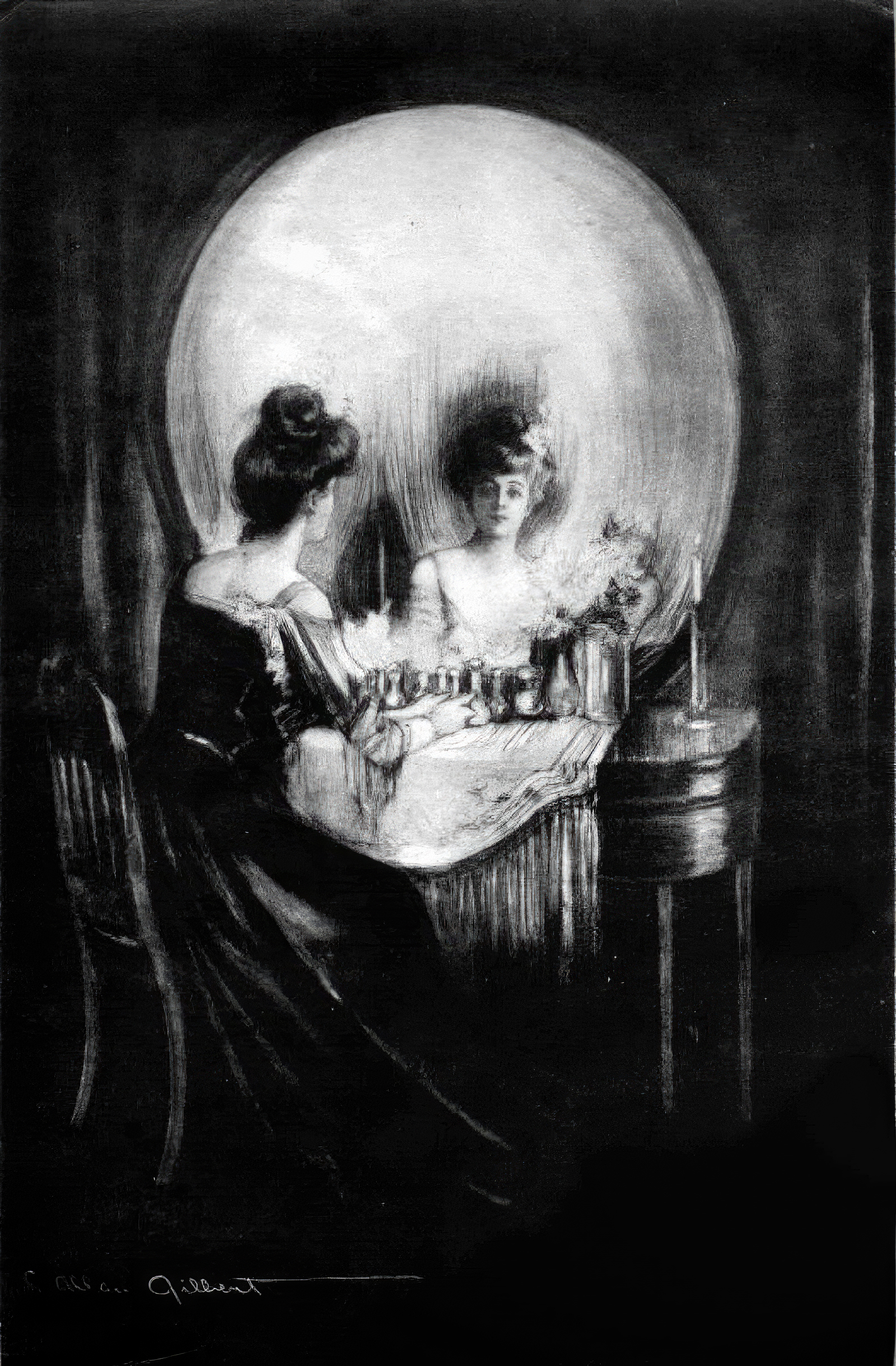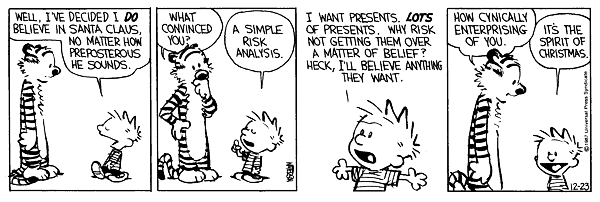(It's interesting to note that vanity means both "excessive pride in or admiration of one's own appearance or achievements" and "the quality of being worthless or futile", and I think both definitions apply to my question above).
"My own little nasty world"
Was Socrates right when he said "The unexamined life is not worth living", or is the correlation between thinking and happiness that the more you think, the less happy you are?
I do my best to only speak for myself in this forum and in "real" life as well, but when I think I like to think in generalities as well as specifics. I've been running into a word lately in my reading that not only encapsulates a good deal of my free-form thinking, but also some of what I've been doing here. More than a dictionary definition is called for, so allow me this chunk from Wikipedia:
Ontology is a study of conceptions of reality and the nature of being. In philosophy, ontology is the study of being or existence and forms the basic subject matter of metaphysics. It seeks to describe or posit the basic categories and relationships of being or existence to define entities and types of entities within its framework.
Some philosophers, notably of the Platonic school, contend that all nouns refer to entities. Other philosophers contend that some nouns do not name entities but provide a kind of shorthand way of referring to a collection (of either objects or events). In this latter view, mind, instead of referring to an entity, refers to a collection of mental events experienced by a person; society refers to a collection of persons with some shared interactions, and geometry refers to a collection of a specific kind of intellectual activity.
As a philosophical subject, ontology chiefly deals with the precise utilization of words as descriptors of entities or realities. Any ontology must give an account of which words refer to entities, which do not, why, and what categories result. When one applies this process to nouns such as electrons, energy, contract, happiness, time, truth, causality, and God, ontology becomes fundamental to many branches of philosophy.
I freely admit to being a novice when it comes to ontology, but I do particularly like the fact that it "chiefly deals with the precise utilization of words as descriptors of entities or realities." I'd like to think my pursuit of better words and more accurate descriptions, and my desire to ask better questions and seek more accurate answers, serves a larger purpose than simple self-improvement. There have to be reasons beyond vanity and self-promotion that millions of people spanning the length of human existence have been compelled to write down the stuff going on in their heads and try their best to circulate it to the widest audience possible, right?
Unfortunately, and quite the opposite from my expectations as a younger man, it seems to me that carrying on discourse of this flavor, at least in in-person conversation, becomes less feasible the older we get. When the Beatles sang "But if you go carrying pictures of chairman Mao, You ain’t gonna make it with anyone anyhow" in 1968's "Revolution 1", I imagine they weren't talking to the Chinese, but to thinkers and theorists raining on the Age of Aquarius's indulgent parade.
I was wholly unprepared for my first taste of serious philosophical discussions when I took a Philosophy course my freshman year in college. I was used to taking tests with hard and firm answers, not teasing out the threads of Pascal's Wager, but the weird energy of that class's discussions has stayed with me even though it has rarely been reproduced.
Maybe I'm living proof of Oscar Wilde's position that "Seriousness is the only refuge of the shallow." Maybe I'm afraid that if I stop reading and writing and searching and questioning and challenging myself, as exhausting and frustrating as it can be, I won't be me any more. Of course, I have to live with the possibility that the new me would be happier than the old me, but that's not a wager I'm willing to take. I remember vividly the day a former friend of mine announced proudly that he, at the age of 29, was never going to read another book again in his life. He felt that he was well-read enough to focus his energies elsewhere, but I felt that I no longer had any idea who this person standing in front of me was. I believe that if you're not moving forward, you're moving backward.
There is no standing still.
Right?







2 comments:
That juxtaposition/conflict between the Socrates philosophy of acquiring knowledge and 'the less you think the happier you are' sums up so much of my life's conundrum. Lately I've been leaning toward the latter philosophy. As Lisa Simpson once said 'ITS BLISS'. Good thing you obviously aren't that way. These articles are great. Really love this one and the newer Heath Ledger one. What an enormous drag/shock. Also, Twin Peaks was one of my fav shows of all time, really relished your insights. I'll continue to check back here and absorb away.
Thanks for stopping by P"TJ"K! Mrs. WP just told me the story of the Javekin... good times indeed.
Post a Comment